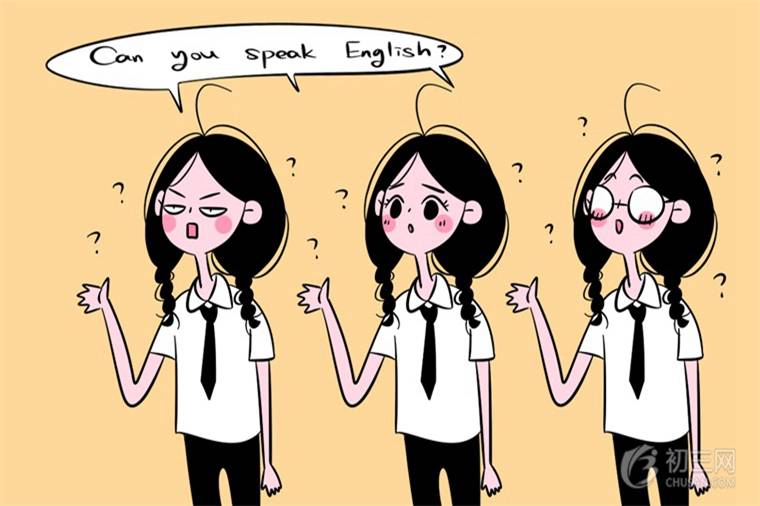英语是一门很重要的学科,学过英语的都知道英语的重要性。下面是整理的一些初中英语总复习知识点,仅供大家参考。

1.形容词在句中作定语, 表语, 宾语补足语。 例如:
Our country is a beautiful country. (作定语)
The fish went bad. (作表语)
We keep our classroom clean and tidy. (作宾语补足语)
2.形容词修饰something, anything, nothing, everything等不定代词时,形容词放在名词后面。
I have something important to tell you.
Is there anything interesting in the film.
3.用 and 或 or 连接起来的两个形容词作定语时一般把它们放在被修饰的名词后面。起进一步解释的作用。
Everybody, man and woman, old and young, should attend the meeting.
You can take any box away, big or small.
4.the+形容词表示一类人或物
The rich should help the poor.
副词在句中可作状语,表语和定语。
He studies very hard. (作状语)
Life here is full of joy. (作定语)
When will you be back? (作表语)
一、宾语从句的种类
宾语从句是一种名词性从句,在句中作及物动词的宾语,或介词的宾语,或
形容词的宾语。根据引导宾语从句的不同连词,宾语从句可分为三类。
1. 由that引导的宾语从句。That只有语法作用,没有实在的意义,在口语
和非正式文体中可以省略。例如:
He said (that) he wanted to stay at home.
I am sure (that) he will succeed.
2. 由连接代词who, whom, whose, what, which和连接副词when, where, why, how引导的宾语从句。这些连接代词和连接副词在宾语从句中充当某个成分。例如:
I don’t know why the train is late.
3. 由if或whether引导的宾语从句。If和whether在句中的意思是“是否”。例如:
I want to know if (whether) he lives there.
He asked me whether (if) I could help him.
二、宾语从句的时态
1. 如果主句的时态是一般现在时,宾语从句该用什麽时态就用什麽时态。
Can you tell me how I can get to the railway station?
2. 如果主句的时态是一般过去时,宾语从句只能用相应的过去时态(一般过去时, 过去进行时, 过去将来时,过去完成时)。例如:
He asked what time it was.
He told me that he was preparing for the sports meet.
3. 如果宾语从句所陈述的是客观真理,其时态常用一般现在时。例如:
Our teacher said that January is the first month of the year.
Scientists have proved that the earth turns around the sun.
1.leave的用法
(1)leave +地点,“离开”。
(2)leave for+地点,“前往”。
(3)be leaving表“将离开”;be leaving for表“将前往”。
(4)leave与forget的区别。leave强调把东西落下,留下之意;forget侧重于忘记了某人,某物,某事。
(5)leave的过去式为left;过去分词为left.
2.enjoy的用法
(1)enjoy oneself
(2)enjoy doing something
3.区分:other;another;elseother“别的”,后跟名词,范围指两者之间。aother“别的”,后跟名词,范围指三者或三者以上之间。else“别的”,常与疑问词连用。例如:what else.另外,else常与复合型不定代词连用。例如:something else.
4.区分:other,others,the other,the others.区分:one another;each other注意:“一个...,另一个...”的表达;“一些...,另一些...”的表达。
5.be good at的用法
be good at“擅长”,可以与do well in,be talented at进行转换。
6.give up的用法
其后跟宾语。give up+名词;give it/them up.c.give up +ving
7.help的用法
(1)意为“帮助”,名词和动词。help为形容词,“乐意助人的,有助的”,helpless为形容词,意为“无助的”。
(2)help somebody (to)do something“帮助某人去做某事”。
(3)help somebody with something “帮助某人做某事”。
(4)with the help of...=with one's help“在某人的帮助下”。
8.区分:a few few little a littlefew / a few用来修饰可数名词,few表示否定意义,没有,几乎没有; a few表示有肯定意思, 有几个。 little / a little用来修饰不可数名词,little表示否定意思,没有,几乎没有。 a little 表示肯定意思,有一点儿。
9.invent与discover的区别
invent为发明,指创造和制作原本没有的事物;discover为揭露,发现,指发现原本存在的事物和现象。

初中学历能做的工作也非常多,比如:生产线工人、销售、厨师、美发、汽修、网络主播、做生意等。销售行业大部分都不限制学历,一般会做人会处事就可以...

初二数学成绩差补救方法:找家教补课,一般孩子初中开始,初二的数学就开始变得难了点,所以,很多学生适应不了,成绩瞬间就下降了,这时候家长就要跟...

最好的初中学校排名前十如下:华中师范大学第一附厘中学、河北衡水中学、人民大学附属中学、长沙市长郡中学、长沙市雅礼中学、上海中学、成都市第七中...

初一成绩总分500,450分以上算优秀,初一学生各科的分数要求达到多少这个问题的确不能一概而论。作为一名初一的学生,那么你的学习呢每科保障在...

初中提高成绩的APP有:《初中帮》、《一起中学学生》、《初中全科学习》、《初中高中知识点》、《讯飞智教学》。初中帮软件里有很多综合性工具,适...

如果考不上高中,可以选择复读:考不上高中,说明你已经意识到自己的成绩不足了,知道自己的各科优势与缺点了,如果今年考不上高中,那么复读一年呢,...

初中是可以考南阳卫校的。南阳卫校有专门的针对初中毕业生报考的五年制五年制和普通中专制专业。

通常卫校的录取分数都是在100分到400分之间,一般来说不同地区的卫校录取分数线线也是不同的,但是初中生不要过于担心,即使需要初中生的分数,...